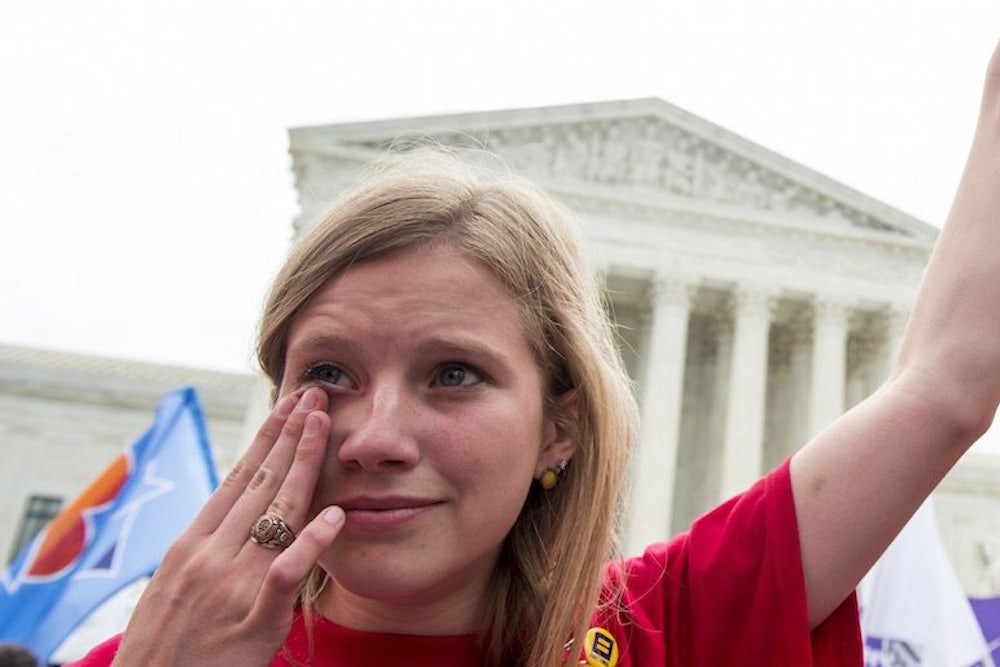The Supreme Court has made same-sex marriage legal nationwide. In a historic 5-4 decision on Friday, the court ruled that any two people have a constitutional right to marry, thereby striking down bans in the handful of states that refused to issue marriage licenses to gay couples. Before the ruling, 36 states and the District of Columbia recognized gay marriage.
Justice Anthony Kennedy states in the Obergefell v. Hodges decision that “[t]he court now holds that same-sex couples may exercise the fundamental right to marry. No longer may this liberty be denied to them.” In another part of the decision, he writes, "It is demeaning to lock same-sex couples out of a central institution of the Nation’s society, for they too may aspire to the transcendent purposes of marriage."
But it's the conclusion of the decision that is the most powerful defense of the rights of same-sex couples:
No union is more profound than marriage, for it embodies the highest ideals of love, fidelity, devotion, sacrifice, and family. In forming a marital union, two people become something greater than once they were. As some of the petitioners in these cases demonstrate, marriage embodies a love that may endure even past death. It would misunderstand these men and women to say they disrespect the idea of marriage. Their plea is that they do respect it, respect it so deeply that they seek to find its fulfillment for themselves. Their hope is not to be condemned to live in loneliness, excluded from one of civilization’s oldest institutions. They ask for equal dignity in the eyes of the law. The Constitution grants them that right.
